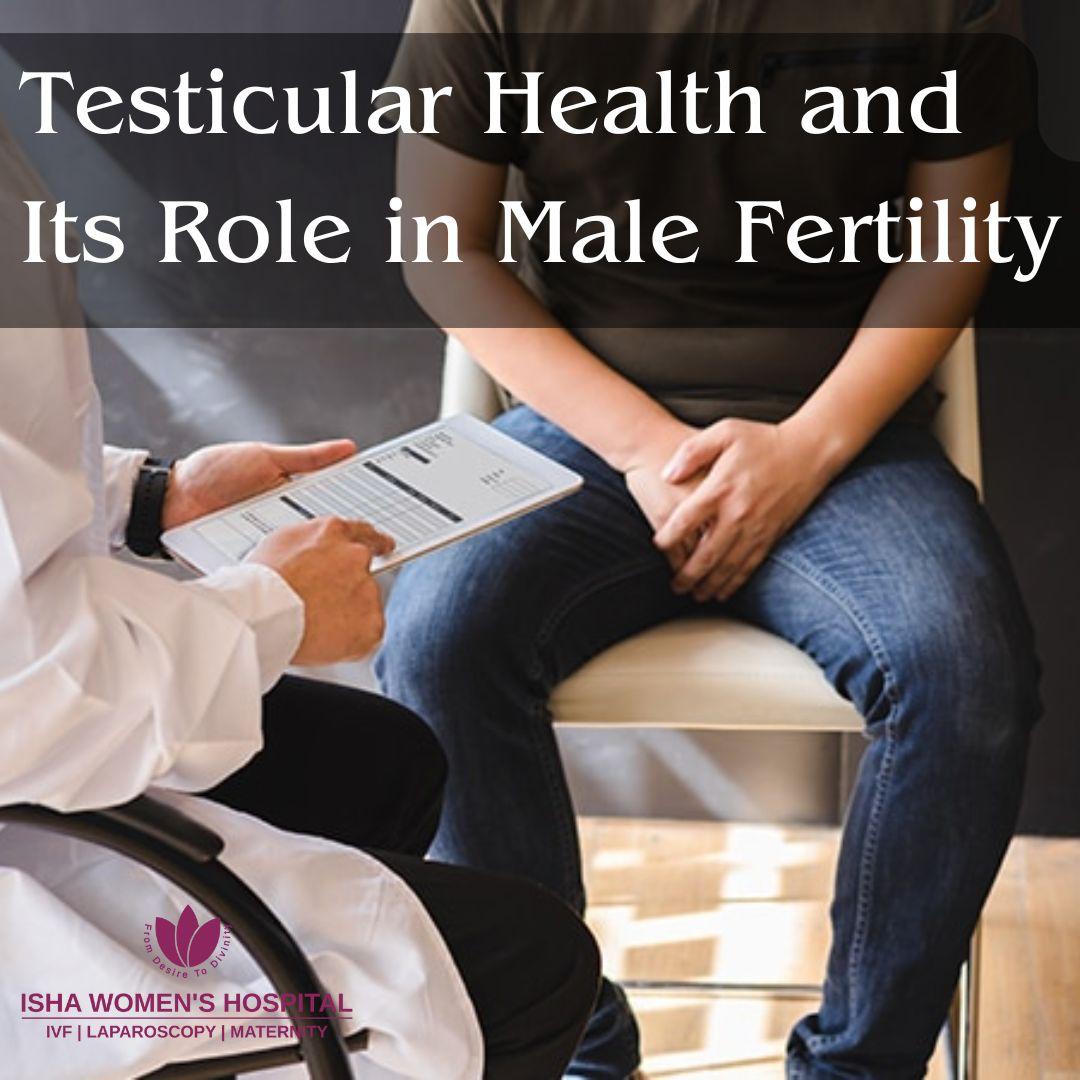Testicular Health and Its Role in Male Fertility

Why is Testicular Health Important for Fertility?
- Sperm Production (Spermatogenesis) – Healthy testes produce millions of sperm daily, ensuring optimal fertility.
- Hormone Production – The testes secrete testosterone necessary for sperm development and overall reproductive health.
Factors Affecting Testicular Health and Fertility
Varicocele is a condition where the veins inside the scrotum become enlarged, leading to increased testicular temperature and reduced sperm quality. It is one of the most common reversible causes of male infertility.
2. Hormonal Imbalance
Low testosterone levels or imbalances in FSH (Follicle-Stimulating Hormone) and LH (Luteinizing Hormone) can affect sperm production. The expert team at Isha Women's Hospital provides comprehensive hormonal assessments and customized treatment plans to restore reproductive health.
3. Infections and STDs
Infections like orchitis (inflammation of the testes) and sexually transmitted diseases (STDs) can damage sperm-producing cells. Timely diagnosis and expert treatment at Isha Women's Hospital can help prevent long-term complications.
4. Lifestyle Factors
- Obesity – Excess body weight affects hormone levels, leading to reduced sperm quality.
- Smoking & Alcohol – Toxins in cigarettes and alcohol can cause sperm DNA damage.
- Heat Exposure – Frequent exposure to high temperatures (hot tubs, saunas) can reduce sperm production.
- Nutritional Deficiencies – A diet lacking in zinc, vitamin C, and antioxidants negatively impacts sperm health.
5. Testicular Disorders and Genetic Conditions
Testicular disorders and genetic conditions, such as Klinefelter syndrome, undescended testes, and testicular torsion, can significantly affect sperm production. Dr. Chinmay Pataki, the leading male fertility expert in Thane, specializes in diagnosing and treating these complex cases. Through advanced techniques like Micro-TESE, he helps men conceive using their gametes, offering hope to those facing severe male infertility.
How to Maintain Good Testicular Health?
- Eat a Balanced Diet – Include foods rich in antioxidants, omega-3 fatty acids, and vitamins.
- Exercise Regularly – Maintain a healthy weight to balance hormone levels.
- Avoid Excessive Heat – Limit sauna exposure and avoid tight underwear.
- Quit Smoking and Alcohol – Improve sperm quality by eliminating harmful substances.
- Get Regular Checkups – Early detection of testicular issues can prevent infertility.
The experts of Isha Women's Hospital also specialize in ICSI (Intracytoplasmic Sperm Injection), an assisted reproductive technique for male infertility, and genetic testing to identify underlying genetic causes. With personalized treatment plans, state-of-the-art technology, and comprehensive andrology and embryology services, Isha Women’s Hospital ensures the highest standards of fertility care, making us the preferred choice for male infertility treatment in Thane.
If you are struggling with male fertility issues, Isha Women’s Hospital is here to help!
Consult Dr Chinmay Pataki, the best fertility specialist and gynaecologist in Thane, and take the first step towards fatherhood.
Frequently Asked Questions (FAQs)
Answer - The testicles (or testes) are essential for male fertility as they produce sperm and testosterone. Sperm production takes place in the seminiferous tubules within the testicles, and a healthy sperm count, motility, and morphology are critical for fertilization. Testosterone, the male sex hormone, supports sperm production and overall reproductive function.
2. How does poor testicular health affect fertility?
Answer - Poor testicular health can lead to reduced sperm production, abnormal sperm, or even complete absence of sperm (azoospermia). Conditions like varicocele, infections, hormonal imbalances, or testicular injury can impair fertility. Early diagnosis and treatment are important to restore or preserve reproductive potential.
3. What are common signs of testicular problems that may impact fertility?
Answer - Common signs include pain or swelling in the testicles, lumps, a feeling of heaviness, reduced sex drive, or visible enlargement of veins (varicocele). Any persistent or unusual changes should be evaluated by a urologist or fertility specialist.
4. Can lifestyle factors affect testicular health and sperm quality?
Answer - Yes, lifestyle plays a significant role. Factors such as smoking, excessive alcohol consumption, drug use, obesity, poor diet, tight clothing, prolonged heat exposure (like hot tubs or laptops on the lap), and chronic stress can negatively affect testicular function and sperm quality.
5. How can men improve their testicular health to boost fertility?
Answer - Maintaining a healthy lifestyle is key. This includes eating a balanced diet, exercising regularly, avoiding tobacco and alcohol, managing stress, wearing loose-fitting underwear, and avoiding excessive heat exposure. Regular checkups and early treatment of any issues can also help preserve fertility.
